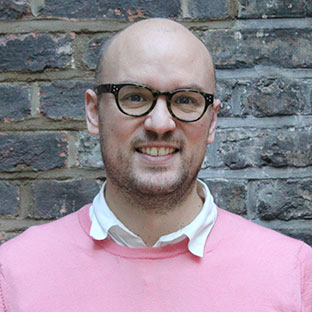The FE and skills sector needs a dose of ‘possibility thinking’ if it is to use its adaptability to drive its own self-improvement.
The immediate future represents (yet another) existential turning point for the FE and skills sector. Recent funding cuts, area-based reviews, the 3 million apprenticeship target, an inspectorate unconvinced by improvements and compulsory education to 19 are precipitating a bewildering array of questions about the configuration and purpose of further education and skills training. While the sector has a history of adaptability and responsiveness to policy and structural change, the cumulative result has been confusion for practitioners and the public. This particular wave of change, however, provides an opportunity for the sector to reclaim a sense of agency and self-determination, vital for any sustained improvement. For the sector to take full advantage of this moment will require a shift in self-concept, imaginative, assertive and creative leadership at all levels and an optimistic outlook that imagines the possibilities, as well as one that can respond to the certainties. No tall order, then?
At the RSA, we believe that cultivating creative capacities and ensuring equality of opportunity to realise aspirations and put ideas into practice, is crucial for an adaptive, inclusive society. The FE and skills sector’s relationships with both employers and communities, its blend of educational and social cohesion functions and above all its self-concept as the "thinking-doers" of the education system are all contiguous with this ethos and core belief that everyone should have the freedom and power to turn their ideas into reality.
In this new era, the FE and skills system has a chance to reposition itself at the forefront of this agenda and at the heart of the communities it serves. Simultaneously, there is a chance to redefine the sector as a dynamic, entrepreneurial, innovative force for city/regional development, learner engagement and civic pride.
Many publications covering the FE and skills sector begin with a now-familiar refrain: the sector is misunderstood by policymakers, the press or the public, is the victim of policy changes that reflect that misunderstanding and which further serve to prevent it from having the impact that it might have and that the post-incorporation policy tombola has engendered a sense of learned helplessness and an atmosphere of public servitude, rather than public service. In this context, optimism is something of a faux pas; with many practitioners, leaders and commentators feeling like they have been here and seen it all before. The government’s challenge to the sector to become more entrepreneurial can sound like a threat, rather than a provocation.
Optimism is a choice. It depends on seeing challenges as enabling, rather than disabling; it requires courage. Optimism and courage are in the sector’s nature as the champions of the second chance, and where they persist, it is because of the tenacity and resilience of practitioners. The essays in the RSA's new collection, Possibility Thinking: reimagining the future for FE and skills, identify how practitioners in the sector might interpret many of the new challenges they face as cause for optimism. The new compacts devolving city/regional skills policy are already enabling closer partnership working and more productive collaboration between city authorities, local employers and FE and other training providers. Mergers (as the essay by Paul Little of City of Glasgow College attests) can provide opportunities to negotiate stronger deals with employers, local government and smaller specialist providers; to create more integrated, less fragmented thinking in FE and skills provision within localities.
A more integrated sector provides the context and the impetus for a revitalised discourse around vocational pedagogy in FE and skills that could influence other parts of the education system, via improved articulation pathways to HE and stronger relationships with schools. Understanding and communicating (whether through marketing or better use of student data) both successes and shortcomings could pave the route to both sectoral improvement and transformed public value, which will only be enhanced as the sector becomes more visible, better connected.
Related articles
-
Counting the cost of bowling alone
Andy Haldane
In his 2025 CEO Lecture, Andy Haldane addresses how the ever-increasing cross-border flows of goods, people and information affect widening divisions and accelerate the depletion of social capital.
-
Prosperous Places: creating thriving communities
Tom Stratton
With regional growth at the top of the agenda, it is vital that we create thriving communities across economic, social and natural perspectives. Prosperous Places is a suite of interventions aimed at responding to the unique ambitions and challenges of places.
-
Pride interview: Felipe Tozzato
Deborah Ajia
The commercial photographer and RSA Fellow explains what Pride means to him, the importance of courage, making friends through rugby and why being gay is his superpower.




Be the first to write a comment
Comments
Please login to post a comment or reply
Don't have an account? Click here to register.